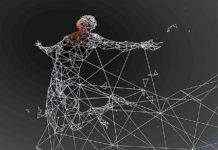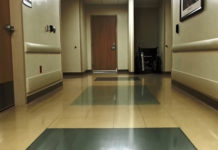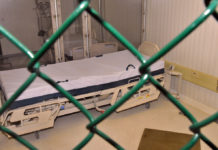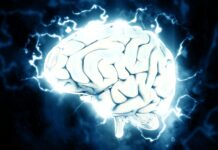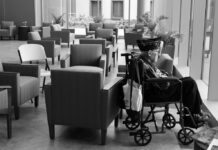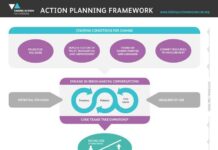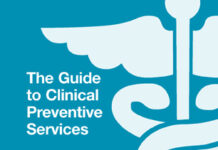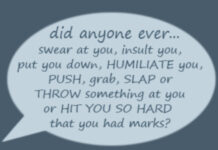How Would We Know If We Overthrew the Mental Health System?
What would it take to go about abolishing psychiatry? If we truly eliminated all the horrid practices that are currently committed by the mental health system, what would the world look like? What follows are 15 ways our society would need to change before we could be confident that we are free from the tyranny of the mental health system.
Study Investigates Factors that Foster Posttraumatic Growth in Prison
Emotional support, religion, and searching for meaning are positively correlated with posttraumatic growth among prisoners.
Study Examines the Difficulty of Withdrawing from Antidepressant Drugs
Correcting unnecessary long-term antidepressant use is difficult and met with apprehension by providers and service-users.
The Need to Address Suicide in Prisons
Rates of suicide in prison are significantly higher than in the general population.
The Angry Congressman: Tim Murphy’s Lack of Insight
The most spectacular part of Rep. Murphy’s hypocrisy has nothing to do with abortion or reproductive rights. Allegations of his dangerous behavior and his lack of insight into his own actions would be enough to commit him, involuntarily, to psychiatric treatment under the Helping Families in Mental Health Crisis Act that he championed.
The Orwellian New Digital Abilify Will Subjugate Vulnerable People Across the US
The FDA approved the prescribing and sale of a new hi-tech compliance-monitoring “antipsychotic” drug this week. A new chapter in human darkness has descended — one that is applauded by the alliance of control addicts that made it happen.
UN to USA: Forced Treatment is Prohibited
The experience with the UN Working Group on Arbitrary Detention's visit to the US is a watershed for our work against forced psychiatry. Step by step, global and national advocacy support each other as part of a worldwide movement to abolish forced psychiatry using the UN human rights framework.
“Prisons Without Bars” – Forced Institutionalization of People with Disabilities
In the wake of deinstitutionalization, we no longer have the vast asylum system we once did. Instead, something more insidious has taken root — for-profit institutions that call themselves neurorehabilitation centers, group homes, and other official-sounding names.
72 Hour Hold for Inalienable Personhood
Poof! Medical science and brain specialists have just alienated your rights. Far be it from me to question expert judgment, but have any of these people ever considered how dangerous it is to abrogate someone's personhood? It's time to recognize inalienable personhood. Social 'othering' is deadly.
Challenges in Measuring Low-Value Healthcare
Differences in patient-centric versus service-centric measures make quantifying low-value care difficult.
Criticism of Coercion and Forced Treatment in Psychiatry
A recent editorial, published in BMJ, argues there is an increase in coercive measures in psychiatry that are damaging to individuals diagnosed with mental illness.
Ethical Failings in Experimental Drug Safety Trials
Leading human subjects ethics researcher questions exploitation of uninsured minorities in experimental drug trials.
United Nations Report Calls for Revolution in Mental Health Care
In a new report, the United Nations Special Rapporteur on the right to health, Dr. Dainius Pūras, calls for a move away from the biomedical model and “excessive use of psychotropic medicines.”
New UN Report: Steps Forward, But No End to Impunity
Dainius Pūras, UN Special Rapporteur on Health, has issued a groundbreaking new report critiquing biopsychiatry and its reliance on coercion, yet he pulls his punches, most unforgivably by treating the obligation to end coercive practices as a matter for gradual rather than immediate implementation.
New Review Highlights Dangers of Electroconvulsive Therapy
Data shows that over a third of users experience permanent memory loss and that approximately half report not receiving adequate information about the risks from their doctors.
Veterans with both PTSD and Dementia More Likely to be Prescribed Antipsychotics
Researchers found that veterans with both conditions had higher odds of being prescribed second-generation antipsychotics than those presenting with just PTSD.
Reducing Overuse of Low-Value Treatments
Researchers provide an action-planning framework to engage providers in the reduction of low-value healthcare.
The Torture in Treatment
In psychiatric hospitals we have set up the same environment as the Stanford Prison Experiment, but without a professor watching who has the authority to shut it down when things go horribly wrong. As a patient, there wasn’t any protection from the inescapable abuse of limitless power.
Two Thirds of Patients See Physicians Who Receive Payments From Pharma
Study finds more patients are visiting physicians who have ties to industry than previously thought.
‘CRAZY’: New Documentary about Forced Psychiatric Treatment
Lise Zumwalt’s new documentary “CRAZY” follows Eric, a young adult diagnosed with serious mental illness, and his father, who together want to change Eric’s treatment. However, the county does not want to give them a say.
Experts Concerned That Depression Screening Will Lead to Overdiagnosis
Behind the U.S. task force recommendation to screen all children and adults for depression.
Committed: The Battle Over Involuntary Psychiatric Care
Dinah Miller and Annette Hanson are psychiatrists who blog at Shrink Rap. On one topic we agree — the subject of involuntary care is the most contentious and troubling topic for psychiatry. To their credit, they have directed an enormous amount of attention to this subject in their latest book.
BPS Releases Review of Alternatives to Antipsychotics
BPS releases report encouraging behavioral interventions for people with dementia, rather than antipsychotics
Safety Analysis Weighs Harms and Benefits of Antipsychotic Drugs
The researchers find that the drug effects for reducing psychosis are small and that treatment failure and severe side effects are common.
The ACE Survey is Unusable Data
Do the effects of trauma matter more, or a person's ACE score? I think this is unusable data that harms people when you gather it. Here's why.






